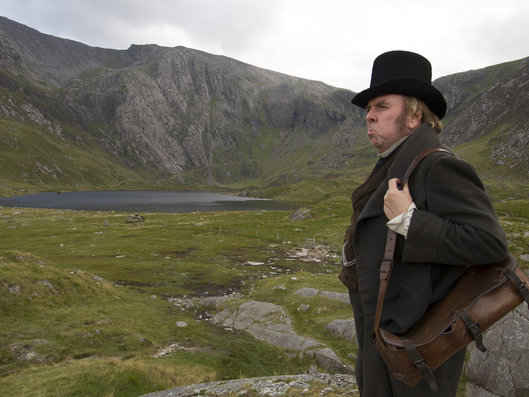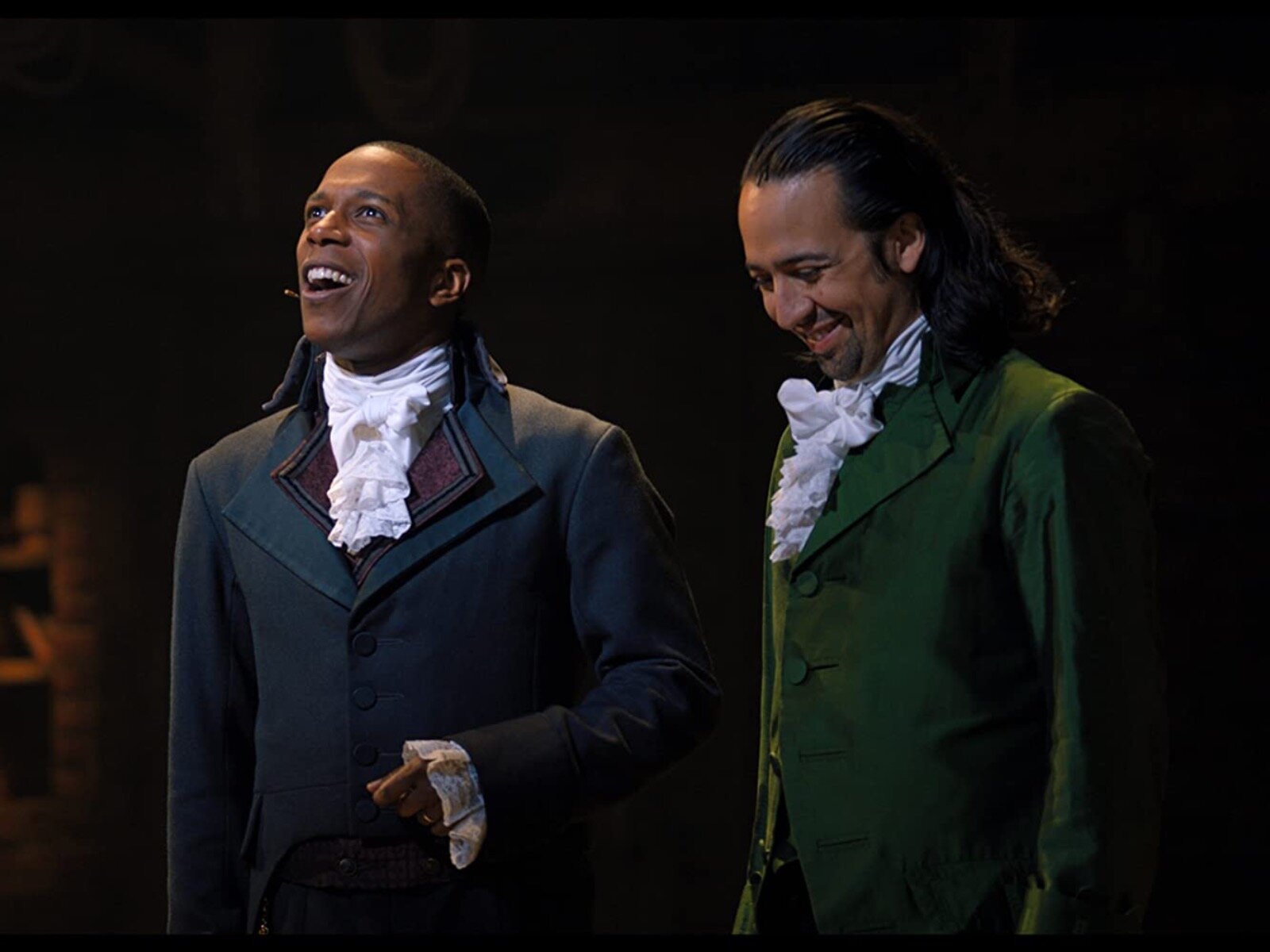You can call "Mr. Turner" many things. Clocking in at 150 minutes, you could call it long. Call it occasionally unpleasant considering its titular subject’s behavior is often crude and abrasive, and his dialogue – sometimes an indecipherable tumble drier of low-pitched grunts and grumbles – doesn’t exactly provide much gilding.
Just don’t call it a basic Great Man hagiography biopic.
While many biopics trim around the complications of their subjects in favor of trite pre-packaged inspiration and stodgy respectability, the lauded writer-director Mike Leigh ("Another Year," "Secrets & Lies") takes on the grand, complicated canvas that was great 19th century painter J.M.W. Turner. Even Gary Yershon’s score sounds different, washing an often eerie tone over the proceedings. The result is a thoroughly textured and unusually rich (not to mention sublimely beautiful) portrait of a complete man, the agony he could wreak as well as the ecstasy.
But about that first bit, the agony. Timothy Spall (a veteran Brit character actor most recognizable as Wormtail from the Harry Potter series) portrays the renowned artist as a kind of hybrid of part bulldog and part Danny DeVito’s Penguin in "Batman Returns." He’s almost perpetually in a state of perma-scowled sputumy mumbling. He hurls spit upon his paintings, his sexual advances are crude and when he cries sketching a perfectly positioned prostitute on a brothel visit, the pained gargles sound more like a birthing process.
Turner’s cold treatment of selected others often isn’t much more graceful. He refuses to acknowledge the existence of his former lover (Ruth Sheen) or their two daughters – even going as far as not attending the youngest’s funeral. His loyal and quietly yearning housekeeper (Dorothy Atkinson) is given similarly brusque treatment, viewed coldly as merely the help and occasionally exploited for his sexual whims (Leigh compassionately gives her the final quietly heartbreaking scene).
The art scene isn’t spared his difficult demeanor either. The self-important critic John Ruskin – or Wuskin, considering the child-like lisp given to him by an amusingly pompous Joshua McGuire – is just noise, given the same reverent treatment as dead moths trapped in a skylight. Meanwhile, he causes havoc at the Royal Academy of Arts, smudging a red blob on one of his maritime works merely to send a finicky rival off in a huff – and of course coming back to salvage the painting by carefully turning the blob into a buoy.
That’s the thing; along with Turner’s undeniable gall comes his undeniable genius. His paintings are remarkable, and so is his observant eye for the beautiful world around him and his constant quest to find more – including tying himself to a ship’s mast to get an inside look at the chaos of a storm.
He also kept a keen, almost radical eye on the future. He ponders philosophy and science with Mary Somerville (Lesley Manville), a female scientist working on magnetization and color, and evolves his own work into more abstract directions much to the dismay of the gossipy, drama-filled art world (some things don’t change). Even late in life, he intriguingly investigates the latest in art: the daguerreotype. For a man of his time, he was also a progressive.
Meanwhile, Leigh balances Turner’s occasional cruelty with compassion. His relationship with his enthusiastic and encouraging father (Paul Jesson) is tender, and he’s often jovial and admiring of the art and artists surrounding him. Much later, he also starts up a soft, sweet late romance with his cheery twice-widowed landlady Mrs. Booth (an effortlessly delightful Marion Bailey).
Even though the grumbling and gurgling take center stage, Spall’s performance lets all of Turner’s colors show. He fully owns the character’s flemmy, ugly moments, with no sign of personal ego to be found. But there’s always an engaging human inside Spall’s portrayal. Each grunt and mumble has a trace of feeling and emotion – it starts cryptic, but you soon pick up on it like a second language – and there are moments, like a conversation with Mrs. Booth’s second husband about haunted memories of the past, when the scowl and eyes soften, the curmudgeon cracks and the sad, human compassion is right there.
Between Spall and Leigh’s astute screenplay – examining its subject, as well as his place in thee ever-evolving realms of art and time – "Mr. Turner" elegantly captures all the fascinating, contrasting elements of its lead. He’s a man capable of creating great beauty but also great callousness. The film balances between the flaws and the greatness, the warmth and the cold, in the artist’s life, recognizing neither one completely eliminates or discredits the other. Instead, it forms a richly complete picture of a human, a fine balance of light and shade. As Turner himself notes looking at a rainbow through a prism, "Sublime but contradictory, yet harmonious."
Turner’s most famous quote – "The sun is God!", the artist’s bombastic dying ode to the glory of nature – also makes it into Leigh’s script, both literally and in visual spirit. Put simply, the movie is gobsmackingly gorgeous.
The Oscar-nominated cinematography from Dick Pope is a more than worthy accompaniment to the painter’s great works. From the opening shot – a beautiful sun-dappled meadow with two windmills standing guard – Pope fills the frame with painterly compositions of nature at its most handsome. Horses trot next to Turner as he walks up a green hilly vista. Turner fishes in a misty, serene pond.
The most stunning is actually a transition. As Turner viciously slathers paint over one of his masterpieces, the next shot seems to cut to the splattered remnants. Instead, it reveals itself to be a valley seemingly splashed with liquid rocks. It’s a remarkable and surprising moment in a film that constantly finding a new, richly captured images to serve as a muse to Turner and a marvel to the audience.
Even when they’re not in nature, Pope and Leigh are just as visually impressive, recreating a lived-in and textured world of Turner’s 19th century Britain. It’s not just the art galleries, though those – including one organically brightened after putting the viewer in the dark for a minute – are densely packed with wonderful pieces. It’s the details, like the mixing of a clump of yellow paint or the shaving of a pig’s head for dinner. OK, that last one isn’t pretty, but it is a nice, brief moment that brings the world to further realization.
Like its main character, the film's beauty comes with difficulties. All those previously noted issues are there. Each one of its 150 minutes can be felt, and translating Turner’s mumbling can take the first half hour – and even then, you might still wish there was a Rosetta Stone program to help on occasions. Overall, it takes a bit to get acclimated to the mix of beauty and abrasiveness Leigh is presenting.
Once your brain's inner decoder key starts working and you get on the same page with the image "Mr. Turner" is developing, however, there winds up being little to grumble about.
As much as it is a gigantic cliché to say that one has always had a passion for film, Matt Mueller has always had a passion for film. Whether it was bringing in the latest movie reviews for his first grade show-and-tell or writing film reviews for the St. Norbert College Times as a high school student, Matt is way too obsessed with movies for his own good.
When he's not writing about the latest blockbuster or talking much too glowingly about "Piranha 3D," Matt can probably be found watching literally any sport (minus cricket) or working at - get this - a local movie theater. Or watching a movie. Yeah, he's probably watching a movie.







